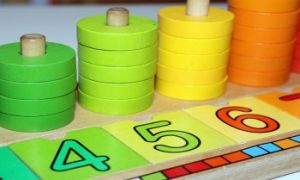

In a busy early learning room, nestled between a soft rug and a basket of sensory tools, something quietly revolutionary was unfolding. It wasn’t a new curriculum or a flashy resource—it was a space. A space designed not for punishment, but for peace. Not for isolation, but for connection. It was the Calm Corner, and it changed everything.
Meditation can be a wonderful tool for preschoolers to help them relax, focus, and manage their emotions. The following article provides simple and engaging meditation activities for young children.
Children, even young ones, regularly experience stress as they negotiate unfamiliar settings and people besides the turbulence of their own inner lives. The following article provides information on Using Calming Strategies for children, Teaching Self Regulation and more.
Like other professional contexts, the early childhood setting too, comes with its own set of pressures and anxieties. Mindfulness can be an excellent way for Educators not only to find their own calm but also to teach children valuable lessons on de-stressing and self-regulation. The following article provides information on What Is Mindfulness, How It Can Help Educators, How It Can Help Children and more.
After a child has a tantrum or a meltdown, offering fine motor tasks and reset activities enables the child to regain their self-regulation and also to return back to the group. The following article provides information on Reset Activities When To Use Rest Activities, Choosing Reset Activities and more.
The Anger Management Posters are great to display in a calm-down area to show children how to regulate their emotions when feeling overwhelmed or angry. Children can choose a task to do from the poster and when completing the task it will help them to calm down. These posters can also be added to a display folder that children can flip through and complete when they need some time to themselves.
Water play is always engaging and soothing for kids. This particular play can be done when the spring is in the air. To start the activity, you could send the children to collect fallen flowers from the garden. Add water to a tub and put the flower petals inside. This experience appeals to all senses and will help soothe children if they tend to lose their calm, get bored, frustrated and agitated. This sensory play activity does wonders to children, right from learning about flowers to creating their own sensory water tub and then having some imaginative play.
Most of the children lose their calm easily and at the same time if we take necessary steps to cool and soothe them, they also tend to forget the incident at once. They just need a diversion at that particular moment and we also need to ensure that we divert their minds in a fruitful and beneficial way. We need to make them do something constructive such as this calming tray, apart from giving a soothing and relaxing effect proves to be a great sensory activity too.
Magnetic bottles are a perfect science, sensory and calm down activity. As Educators, you would also love this because on one hand it's very easy to make and on the other, it has several benefits. Children are going to love these magnetic discovery bottles as they will be surprised to see the objects inside the bottle dance to the tunes of the magnet that they will be operating from the outside. Once you make it, seal the lid and store it on your shelf for using it over a period of time.
The Mindfulness Activity Cards have simple instructions for children to follow. These mindfulness activities will help children feel calmer and happier through these simple muscle relaxation, breathing exercises, listening activities. It's a great way to get children to settle.
 As an Educator in Australia, your pay rate falls under the Children’s Services Award 2010. This award states the minimum amount that an employer can… Read More
As an Educator in Australia, your pay rate falls under the Children’s Services Award 2010. This award states the minimum amount that an employer can… Read More
 When working as a qualified Early Childhood Teacher (with a university degree) within a service, your rate of pay will come from the Educational Services… Read More
When working as a qualified Early Childhood Teacher (with a university degree) within a service, your rate of pay will come from the Educational Services… Read More
 When working as a Diploma Qualified Educator your pay rate is from the Children's Services Award 2010. This Award states your minimum rate of pay… Read More
When working as a Diploma Qualified Educator your pay rate is from the Children's Services Award 2010. This Award states your minimum rate of pay… Read More
 When working as a Cert 3 Qualified Educator, your pay rate is from the Children's Services Award 2010. This Award states your minimum rate of… Read More
When working as a Cert 3 Qualified Educator, your pay rate is from the Children's Services Award 2010. This Award states your minimum rate of… Read More
 Educational Leaders play a crucial role in their early childhood service by ensuring that the educational program aligns with best practices and supports the holistic… Read More
Educational Leaders play a crucial role in their early childhood service by ensuring that the educational program aligns with best practices and supports the holistic… Read More
 In early childhood education and care, ratios are more than a technicality—they are a frontline safeguard. Every child deserves responsive supervision, emotional connection, and developmental… Read More
In early childhood education and care, ratios are more than a technicality—they are a frontline safeguard. Every child deserves responsive supervision, emotional connection, and developmental… Read More
 With the new national child safety reforms kicking in on 1 September 2025, early childhood services like yours have a real opportunity to lead the… Read More
With the new national child safety reforms kicking in on 1 September 2025, early childhood services like yours have a real opportunity to lead the… Read More
 Here’s a comprehensive Mobile Phone and Smart Watch Policy tailored for early childhood education and care (ECEC) services in Australia, aligned with the latest 2025… Read More
Here’s a comprehensive Mobile Phone and Smart Watch Policy tailored for early childhood education and care (ECEC) services in Australia, aligned with the latest 2025… Read More
 The Sea of Fish Challenge is a national initiative that invites children, educators, families, and communities to create and display fish artworks as a symbol… Read More
The Sea of Fish Challenge is a national initiative that invites children, educators, families, and communities to create and display fish artworks as a symbol… Read More
 Across the early childhood education and care sector, educators are sounding the alarm: current staffing ratios are insufficient to deliver safe, meaningful, and developmentally appropriate… Read More
Across the early childhood education and care sector, educators are sounding the alarm: current staffing ratios are insufficient to deliver safe, meaningful, and developmentally appropriate… Read More

Earth Chakra Day is celebrated on the 12th of January. The following provides information About...
See more...
Educator ratios must be upheld at all times, including during care tasks unless supervision is...
See more...
Reflections are an ongoing occurrence that enables us, educators, to think honestly about our professional...
See more...© 2009-2025 Aussie Childcare Network Pty Ltd. All Rights Reserved.

